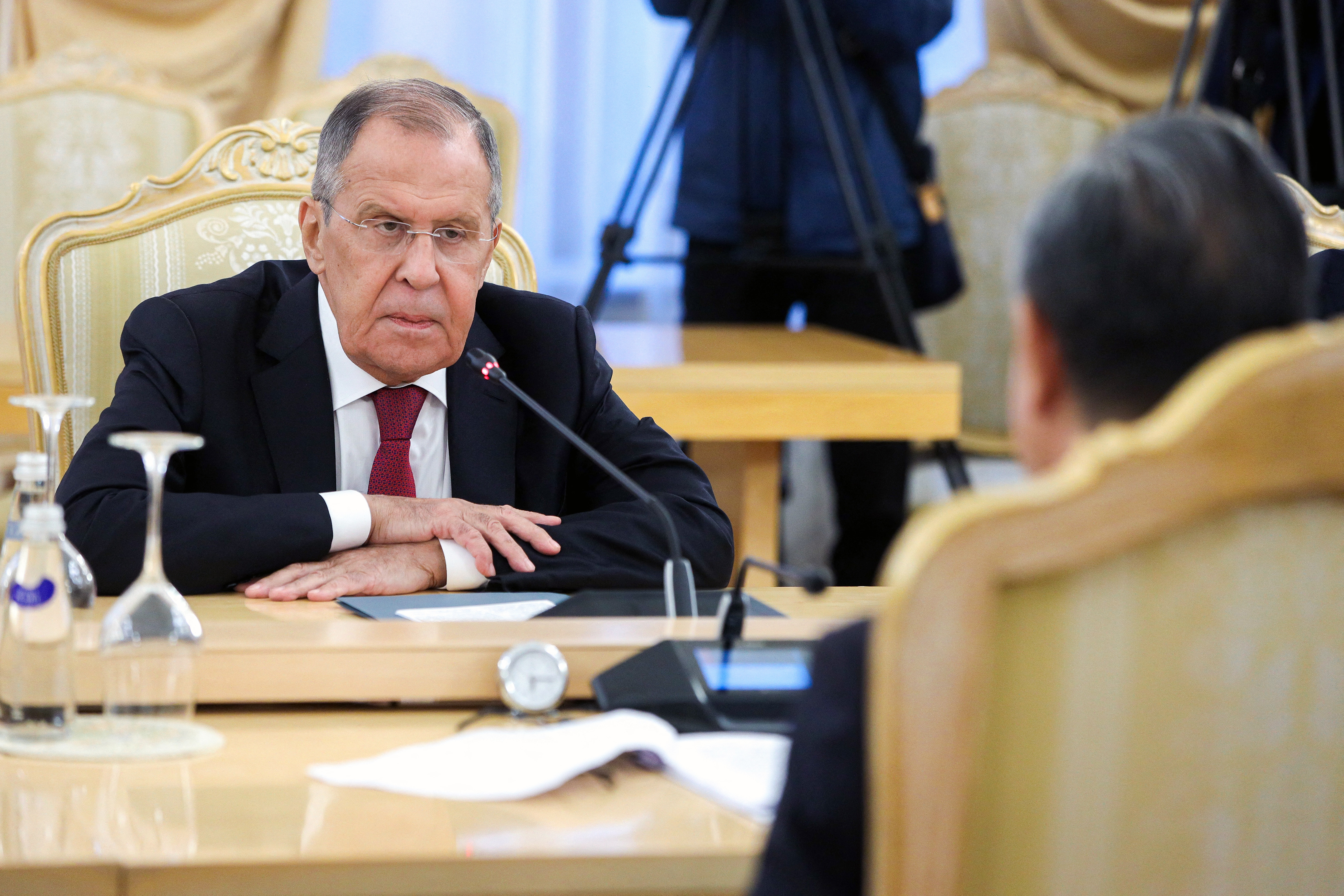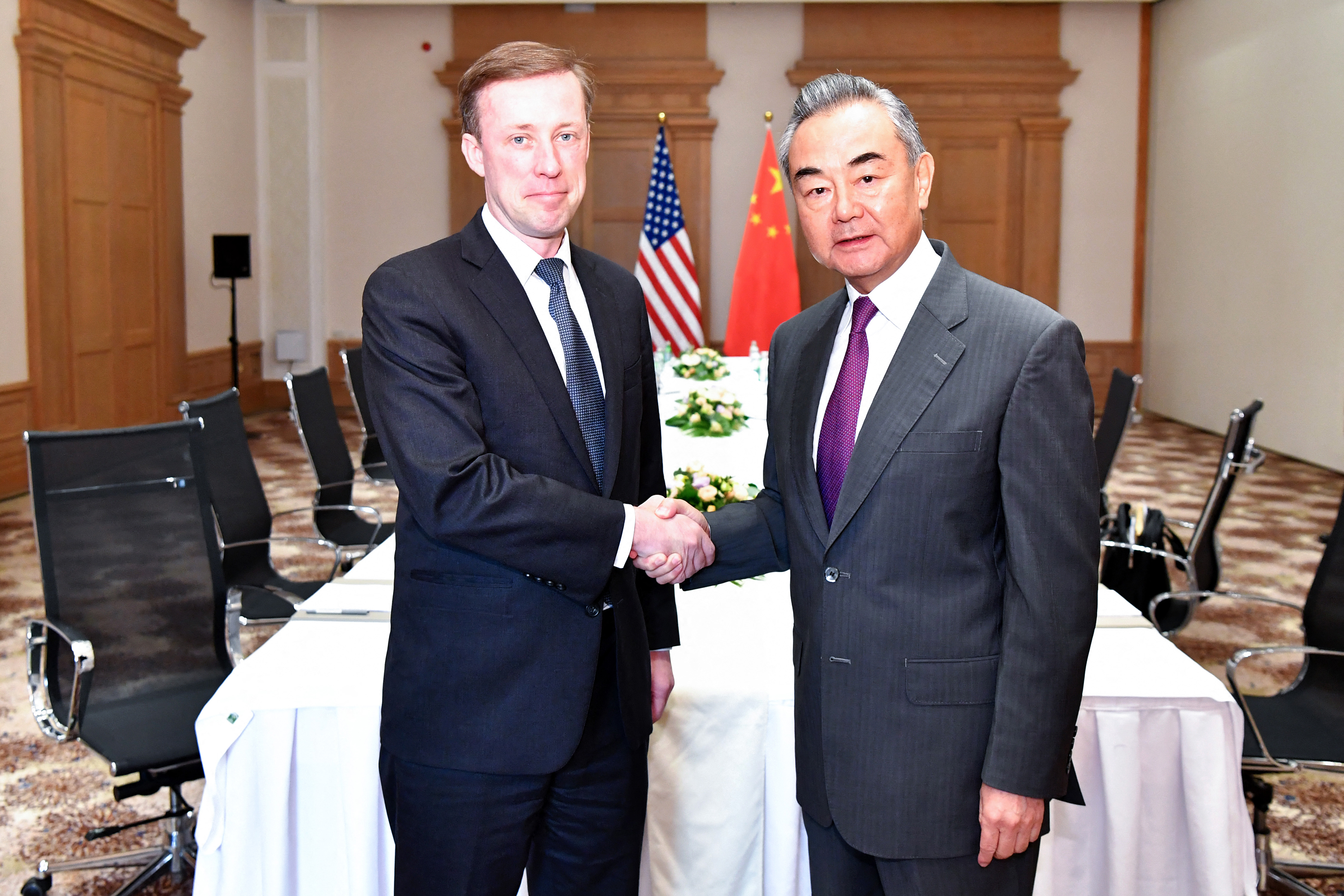
Moscow's and Beijing's top diplomats noted "closeness" in their positions on Washington's "anti-Russian and anti-Chinese" stance and agreed any bid to resolve the Ukraine crisis must include Moscow, Russia's foreign ministry said early on Tuesday, according to Reuters.
Wang Yi, Chinese leader Xi Jinping's point man for international dealings, is in Moscow for several days of security and foreign policy talks with Russian officials.
While not committing to defend each other's country with military support and with President Vladimir Putin leaning on Xi far more than China does on Russia, supplying Chinese demand for oil and gas, the two countries have said they drew closer to counterbalance the perceived U.S. domination of global affairs.

"The negotiations took place in the trusting and constructive manner inherent in the Russian-Chinese dialogue," the ministry said.
It added that Lavrov and Wang talked "in detail" about Ukraine, "noting the futility of attempts to resolve the crisis without taking into account the interests and especially without the participation of Russia."
The war in Ukraine has claimed the lives of thousands of people, displaced millions, turned cities into rubble and has no end in sight.
Wang will hold "strategic security" talks later on Tuesday with Nikolai Patrushev, the secretary of Russia's Security Council, Russia's Interfax reported, before holding trilateral talks with Mongolian officials.
In a statement Monday, Russia’s Foreign Ministry said Lavrov and Wang agreed that Moscow’s interests must be considered in resolving the conflict in Ukraine, according to CNN.
“The parties discussed in detail the current state of affairs in Ukraine, noting the futility of attempts to resolve the crisis without taking into account interests and, especially, without the participation of Russia,” the statement said.
China’s summary only presented its position as “consistently adhering” to the direction of peace talks and noted its pledge to “play a constructive role” in a “political settlement of the crisis.”

There were also “limited” early signs that severed military communications between the two sides may start to be restored, a senior Biden administration official said.
Chinese officials did not comment on the prospect of military-to-military communication.
China’s foreign ministry said both sides agreed to maintain high-level exchanges and hold bilateral consultations on Asia-Pacific affairs, maritime affairs and foreign policy.
The United States told China it was ready to work together on counter-narcotics, artificial intelligence and climate change.
Wang cautioned the United States that the Taiwan issue is the “first insurmountable red line of Sino-U.S. relations,” according to the Chinese foreign ministry statement. China claims the self-ruled island as its own territory.
Wang also said China’s development has a “strong internal momentum” and “cannot be stopped”, and that the “Chinese people’s legitimate right to development cannot be deprived”.
In its statement, the White House strongly suggested that more meetings are to come between the U.S. and China, adding that both sides “committed to maintain this strategic channel of communication and to pursue additional high-level engagement and consultations in key areas ... in the coming months.”